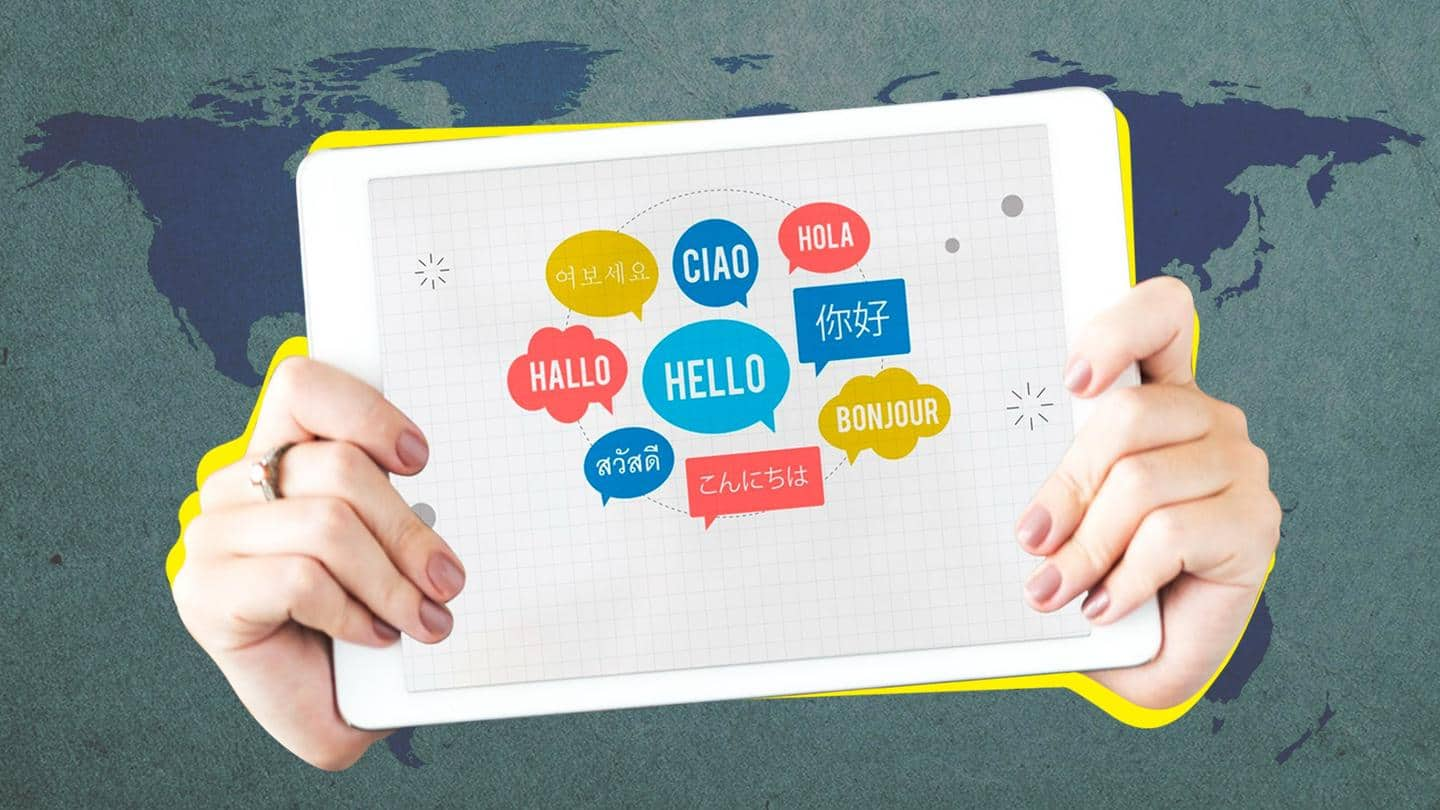
Learn these basic phrases before visiting these non-English speaking countries
What's the story
"Not all who wander are lost," they say. However, you actually may if you're traveling to a non-English speaking country without knowing the local language. Although English is an official language in many countries, there are some that have languages based on their own ancient scripts. On that note, here are some common phrases you must learn before traveling to the following destinations.
The land of the Eagle
Albania
In Albanian, "Faleminderit" means "thank you", "Më fal" is "sorry", and "ju lutem" is how you say "please." If you agree to something say "po" (yes) and if not, use "jo" (no). Easy? Po! To greet someone, say "Përshëndetje" (hello) or "Më falni" (excuse me). Ask someone's name saying "Si quheni" and introduce yourself by "Unë quhem (name)" which means "my name is".
The land of Roses
Bulgaria
"Kazvam se (name)" is how you introduce yourself in Bulgarian, while "kak se kazvash?" translates to "what's your name?" Good morning is "dobro utro", good afternoon is "dobar den", and good evening is "dobar vecher". "Da" (yes), "ne" (no), "molia" (please), "izvinete me" (excuse me), and "blagodarya ti" (thank you) are some other important phrases. Say hello with "zdraveite" and goodbye with "dovizhdane".
The land of the Franks
France
"Bonjour" (hello!), are you visiting France? Well, "Madame"/"Monsieur"/"Mademoiselle" (Mrs./Mr./Miss), you must learn the following phrases. You'd often use "Merci" (thank you), "S'il vous plait" (please), "Excusez-moi" (excuse me), "Je suis désolé" (I am sorry), "Oui/Wee" (yes), and "Non" (no). Don't forget to introduce each other by saying "Je m'appelle (name)" (my name is) and "comment t'appelles-tu?" (what's your name?).
Land of the rising sun
Japan
Yes! (Hai!), Japan is the next destination on our list. Here, "Lie" is (no), "O-negai shimasu" is (please), "Arigatō" is (thank you), " Dōitashimashite" is (you're welcome), "Sumimasen" is (excuse me), and "Gomennasai" is (I'm sorry). Met a Japanese folk? Ask "O-namae wa nan desu ka?" (what's your name?) and tell yours by saying "Watashi no namae wa (name) desu" (my name is).
Land of Morning Calm
South Korea
"Gahm-sah-hahm-ni-da" (thank you) for staying till the end. It's time to learn some South Korean phrases. In this language, "Chon-mahn-eh-yo" means (you're welcome), "Ne" means (yes), "Ah-nee-oh" is (no), "sil-le-hahm-ni-da" is (excuse me), and "jwe-song-hahm-nida" is (I'm sorry). "My name is (name)" becomes "je-i-rum-eun (name) im-ni-da" and "song-ha-mi o-teo-ke dwe-si-ji-yo?" means "what's your name?". Greet by saying "ahn-nyong-ha-se-yo!" (hello) and "ahn-nyong-hee ga-se-yo" as (bye).